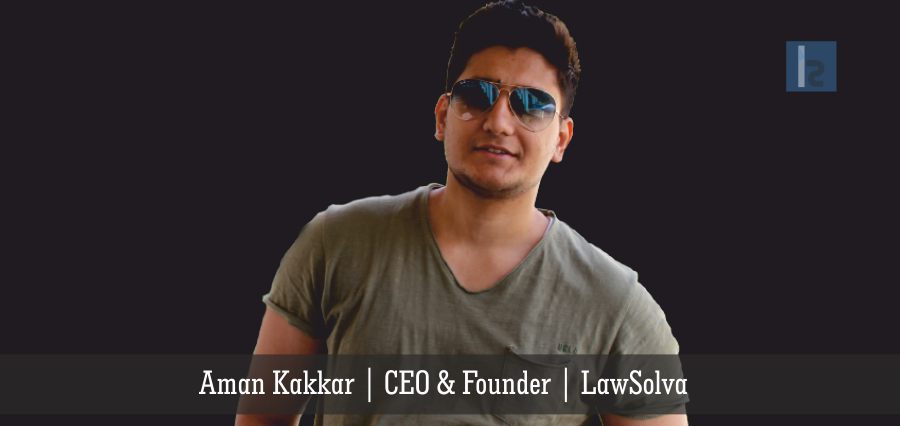LawSlova is a legal firm providing swift and consistent legal solutions appropriately and efficiently from lawyers across the country on a single platform. It delivers the user with hands-down legal knowledge, guidance and advice. Aman Kakkar, CEO and Founder at LawSolva is an experienced advocate offering litigation at various courts of law. In conversation with him he shared his views of the current scenario on court cases in the legal system and with the help of technology, the legal system can be transformed in a big way.
As per National Judicial Data Grid statistics, There are 2, 67, 73,356 cases pending in various courts of India, and it is escalating with each coming day. Drastic measures need to be implemented to reduce this colossal number and deliver justice to the litigants. It is the age of the millennial and we could definitely seek technology’s help to crack this challenging problem.
There is a cause list generated daily which includes the cases to be taken up in the court the next day. When the cases are being called in the court, it has generally been observed that many advocates are waiting for 2-3 hours or more just to seek adjournments in their cases.
Due to this, the precious court time is wasted each time such a case is called out. To prevent this, an online system may be created where the advocates can email the day before to the court assistant or the reader filing a written request for adjournment. The court may then grant dates as per it’s discretion by the end of the next day which can be enquired online or from the court reader the next day.
This practice would enable all the courts to take up the matters only where both parties are prepared for the next day hearing. It would further save up to 45 minutes daily valuable time of the court. This would further empower the court to hear more matters every day. This system has been adopted in many developed countries as well and has proven to be pretty effective.
The latest figures (as on 11 July 2016), as seen from the National Judicial Data Grid and Department of Justice data, tell us that there are 16,438 judges at the subordinate judiciary level, 621 in high courts and 29 in the Supreme Court. In total we can say there are 17,088 courts in India working 243 days per year on average. If the above system is implemented it can provide an extra time of 768,960 minutes(534 days) to the courts per day which turns out be a whopping 129,762 days (355.5 years) per annum to the courts pan India. I am sure 355.5 years’ worth time can surely be utilized to resolve the judicial backlog issue of over 2.5 crore cases in India.
Moreover, the advent of Artificial Intelligence (AI) can impact the legal domain in a huge way. The legal realm is a universe of documents, case laws and Acts. AI helps with legal research which could otherwise take days to complete. The tedious tasks like review and analysis of documents, proof reading, and document discovery can be done in no- time. Gigabytes of legal orders could be processed with the help of AI and outcomes can be assessed more accurately. These tasks are humanly impossible otherwise. Moreover, the crimes these days are being done through social media via smartphones, laptops etc. Analyzing data items for evidence on such devices may take up to days of human effort. AI is the clear answer to this problem.
A senior British Judge proposed a solution in a disclosure case that artificial intelligence (“computers learning from feedback to make accurate decisions”) be used to help prosecutors trawl through digital evidence instead of humans doing so. The senior British judge had said that “technology has created many of our current [evidence] disclosure problems” – and then added that AI will fix them”.
It is said that “necessity is the mother of invention”. To our good luck the inventions have already been made, we just need to utilize them.
Tech to tame the elephant in the room- The judicial backlog and legal challenges


